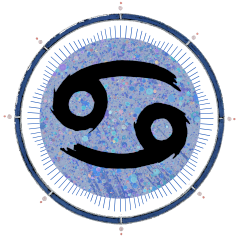Dear Friend and Reader:
For a few years I’ve been wanting to write an article about how to pick a therapist. I know that there are those for whom opening up a real discussion about their lives is burning in their soul. Others know they’ve been dealing with the same problems over and over for years. You may see the same patterns repeating in your relationships, your career, your family life or other aspects of existence, and you decide that it’s time for that to change.
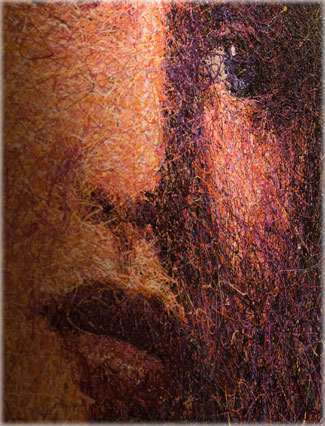
Helping people get into therapy has been one of the themes of my astrological practice. I believe in therapy and I think that in American society, so obsessed with denial and immaturity, it’s the one thing that nearly everyone needs, if they want to grow up and be not just functional adults, but also people who live fully.
Yet till now I haven’t felt comfortable writing the article. So in the interest of good therapy, I’ll start with my hesitancy.
First issue is that I’ve heard a lot of stories of unhelpful or even hurtful experiences. I’ve had a few myself. I’m aware that there’s a lack of trust looming around the whole issue of therapy. There is also a belief that it’s superficial.
Next issue is that when most people are choosing a therapist, they are in some kind of crisis, and that’s not necessarily the best time to be making such a critical decision. Yet it’s the time that it typically happens.
Another issue is that there exist a diversity of misunderstandings about what therapy is and how it works. For many people there is the perception that it’s supposed to be a magic or at least deeply mysterious solution. Images of the patient reclined on the couch in Dr. Freud’s office come to mind; he and he alone understands the workings of their unconscious — and the old man had a lot of problems (as do many contemporary therapists, who according to Alice Miller tend to come from abusive backgrounds).
Others treat therapy as if “going to talk to someone” is the ultimate admission of weakness — they are somehow not self-sufficient or intelligent enough to live their own lives. They want to go it alone. Lurking in the background here may be the idea that “I don’t want to go talk to someone because I’ll find out something I don’t want to know” or “they’re going to tell me I’m crazy.” (Often this translates to some form of, “I don’t want to deal with my problems.”)
Despite the existence of these reservations, I’m confident that good therapy is helpful and possible, though I am skeptical of how many people are actually qualified to do it. When I consider the diversity of innate and trained skills that it’s necessary to have, and the level of ethics required, and how bad the training can be, it doesn’t seem like there will be too many qualified candidates.

When I knew that I needed therapy in my late 20s, I set just one firm guideline for who I worked with — that the person would not have a Ph.D. Twenty years later, I don’t believe that a Ph.D. is an automatic disqualification; I’ve met some fantastic psychologists who have actually earned their doctorates, and who are truly helpful, wise and compassionate souls.
Yet I can see I was onto a significant distinction: I was looking for someone who practiced the folk art of therapy, rather than the institutional or academic kind. I’ll explain the difference in a moment, with a reminder that there are people who are part of both worlds.
My reference to someone named Joe Trusso came from a guy named John, who was having a torrid affair with my then-lover Sabine. One night I went to have dinner with the two of them, and after a while John suggested that I call up Joe and talk to him. John was an illustrious (even notorious) character. I think what I may have trusted the most was that John understood something about me, and his recommendation was an outgrowth of that. I had nothing to lose by going in for a session.
Now, you probably wouldn’t ask your partner’s lover for a reference to a therapist, or to anything for that matter. However, you might get the name of someone by some means that seems unusual. A synchronicity might be involved. In truth, references are a pretty good way to get started shopping around. Ask people you trust if they have heard of anyone, and ask what they heard.
The key fact is this: however you may be feeling, you’re going to need to make an informed decision, you’re going to need to trust that decision for a while (say, for three sessions, till you have a feeling for how things are going), and then you’ll need to evaluate how you did. Even an informed decision is a roll of the dice, however there are common-sense ways you can skew the odds in your favor, which could be applied to any selection process for a healer or practitioner.

If you don’t have a reference from a friend or another practitioner to work with, then open up the local community newspaper and see who is advertising. Pay attention to how you feel reading the ad and dialing the phone.
Is the person easy to reach? If you leave a message, do they call you back fairly soon? Do they answer your questions patiently? This is more than good business practice; therapists know that people often call them when in crisis, and they know that those first few minutes are a key time to cultivate trusting communication, and to offer a prospective client the chance to feel listened to and cared about.
When you pick someone you want to have a first meeting with, you might be inclined to tell them your whole story, which would be a good sign. But sometime during that first visit (or before), make sure you ask for a copy of their CV (curriculum vitae, a long-form resume that all professionals should have available). In my opinion, you’re looking for two things on their CV — the first of which are educational and professional experiences that qualify them for the service that they are currently offering.
Second, I suggest you look for diversity of interests. When I read Joe’s CV, it included therapy training in workshop format, educational experiences, teaching, educational consulting, plus some of his artistic and scientific endeavors. Among them was the fact that he’s a musical composer, with some of his notable performances listed. The topic of his master’s thesis was the magical powers associated with the shapes of musical instruments in indigenous cultures. This impressed me as intelligent and open-minded.
I think it’s far preferable to work with someone who is excited about life, and who challenges themselves to grow and explore existence. That’s the kind of example you want — and a therapist is very much an exemplar, not of a perfect person, but of an alive one. Such a person is more likely to relate to what you say and the unusual things you might want to do, and less likely to try to fit you into a box. The essence of therapy is to bring out the person you are inside, rather than have you be someone else.

Most people will want to know the person’s credentials — you know, they went to Cornell or Harvard and have the following licenses, and that would be enough. However, whatever their credentials, I suggest you go with your feelings. Do they take an active interest in you and your life? Can you feel their empathy? What does your intuition tell you? These things are FAR more important than how many merit badges they have.
Let’s make a distinction between the academic/institutional approach and the folk approach to therapy. To the extent that therapy exists these days, much of it takes the academic/institutional approach — coming with the need to make a diagnosis, for example. Psychologists and social workers have this cryptic thing called DSM-IV, which supposedly lists everything that can possibly go wrong with a person’s mind. As the patient, you would need to fit one of those categories; your diagnosis gets a little code, and that code is used to collect insurance (for example, social anxiety disorder is DSM-IV 300.23). Some people also find it comforting to know what’s ‘wrong’ with them, at least in the theory of a psychologist.
Many practitioners who use the diagnosis model will either prescribe mood-altering drugs, or refer you to someone who will. I find it stunning, shocking and unbelievable that so many millions of people you see on the street are taking ‘anti-depressants’. In my opinion, mood-altering prescription medications are only necessary in rare cases, not for everyday depression or anxiety. There is considerable evidence that they make matters worse. And they are prescribed without actual scientific data (for example, indicating exactly what ‘chemical imbalance’ is being treated). The purported goal of this kind of therapy is to cure the patient.
Alternately, the folk art of therapy has a more down-to-earth approach. The therapy room is a place of refuge or sanctuary. That’s how it should feel when you sit down there — like a place off to the side of existence, protected from the demands of the world, and a place where you want to come back. If after the first session you feel better about your life and you want to come back, that’s a good sign. Then see how you feel after the second session. If things go well for a month or so, give the person a chance and reassess in six months. Remember that there may be ups and downs in your attitude toward the work — but that’s not a given.
In this approach, the therapist is a witness and mentor. They maintain a loving presence, though one that’s not attached to your outcome. This is the crucial difference between a friend (or lover) and a therapist: someone you’re involved with personally may have a diversity of biases and attachments to you; your therapist will see you more objectively, and when you walk out the door you’re free to live your life — and come back — without worrying about their opinion of you.

One goal of this kind of therapy is accelerated maturation. It’s also about learning about yourself through an unusual kind of relationship that can become a model for other experiences. Your therapist should be the most supportive person in your life. This will teach you what a supportive person is.
There’s a deeper layer, though. I believe that ultimately, therapy is about the cultivation of trust. That is the thing learned; the missing experience had. This is saying a lot on a planet where trust is the rarest human element, and the thing most often abused when it’s found.
There is an idea going around that ‘talk therapy’ is superficial, and can only go so far, particularly compared to ‘energy work’. Without commenting on ‘energy work’, I will say this: trust is a core issue in life. Our cynical and self-judgmental attitudes are usually based on lack of trust, and this is almost always crippling.
The therapy relationship becomes the vehicle for that experience of learning trust, not in theory but in actual practice. That takes time, though it will proceed from a point of contact. That point of contact leads to the conscious observation that your trust in someone is growing, that it exists at all, or that some benefit will come from it. The relationship becomes an active demonstration that trust really is possible. One of the deepest learning experiences of therapy is looking for that trust in other relationships — and if you discover it’s not there, taking that fact to heart.
Trust leads to the ability to be vulnerable in a conscious and sincere way. Vulnerability without trust can have some catastrophic results. Most people struggle with trust and vulnerability. The therapy relationship becomes a place to experience those things that were largely missing, and to open up to the missing experiences, carrying what you learn over into other relationships. It’s pretty powerful contrast if you sit in your therapist’s office and have an intelligent conversation about your life, then you go home and feel like you cannot say a word to your parter about anything you talked about.
The best therapists have the flavor of part sage mentor and part peer. They become the authority in our lives which we aspire to be, and then get busy being. They can help supplant the negative or unsupportive influences of parents, whose authority we also aspired to, but who sometimes or often betrayed our trust. Your therapist must be someone who teaches you to respect and take care of yourself — by example, and through the relationship.
Your insurance, if you have any, may not pay for the person you find who takes this approach. That means you will have to pay for it yourself, something I’ve always thought was worth the expense even when I could barely afford food and rent. Therapy is the place you will begin to heal your pain, let go of the past and access your deepest potential. Once you find someone you’re willing to do that with, I suggest you not put a price on it. Do what you have to do to earn the money and write the check every week. You may discover that makes the experience all the more meaningful to you.
Lovingly,


Moonshine Horoscope by Genevieve Hathaway, standing in for Planet Waves Weekly 914 for Friday, August 17, 2012. Edited by Eric. | Eric’s Zodiac Sign Descriptions
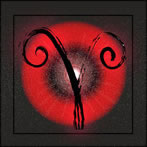 Aries (March 20-April 19) — Understanding your desire, then applying it to intention before letting that aim inform your actions, brings continuous energy flow and a feeling of grounding. Currently, you’re working through a seeming obstruction to your desire-intention-action pathway. You may be feeling an inner push to act on a relationship matter without knowing why you want to. This disconnect between desire and action may be leaving you feeling frustrated. I suggest you ease up on both your relationships and expectations of yourself. Internal blocks will naturally dissolve over the coming weeks, but require patience as situations work themselves out. Place important conversations and decisions on hold until after the New Moon. Information becomes available which will aid you in knowing what you want and where you wish relationships to go. Specifically, your needs in terms of partnership structure are changing to better suit your authentic self. As you make new realizations regarding yourself, you will be freed up to then act in an important relationship. This process brings a greater realization of how to step into your authority to be the conscious architect and artist of your life. — By Genevieve Hathaway
Aries (March 20-April 19) — Understanding your desire, then applying it to intention before letting that aim inform your actions, brings continuous energy flow and a feeling of grounding. Currently, you’re working through a seeming obstruction to your desire-intention-action pathway. You may be feeling an inner push to act on a relationship matter without knowing why you want to. This disconnect between desire and action may be leaving you feeling frustrated. I suggest you ease up on both your relationships and expectations of yourself. Internal blocks will naturally dissolve over the coming weeks, but require patience as situations work themselves out. Place important conversations and decisions on hold until after the New Moon. Information becomes available which will aid you in knowing what you want and where you wish relationships to go. Specifically, your needs in terms of partnership structure are changing to better suit your authentic self. As you make new realizations regarding yourself, you will be freed up to then act in an important relationship. This process brings a greater realization of how to step into your authority to be the conscious architect and artist of your life. — By Genevieve Hathaway
 Taurus (April 19-May 20) — An old-growth tree can withstand storms because the roots extend deep into the soil. But it also remains standing because it’s flexible. You’ve spent time cultivating your own grounding point — inner resources that run deep and can hold up under even the most difficult situations. Think of your emotional grounding as self-worth, confidence in your skills, and an unwavering sense of feeling good being you. These, of course, are ideals to reach for, which you will grasp with greater confidence as time goes on. That brings up the flexibility question, which is your ability to adapt to the changing conditions of the world, including your inner conditions. You tend to place your security in the material world — your home, your car, the status of your bank account. Instead, I propose a question — what would be your greatest assets if you lost all worldly possessions and financial reserves? What would you use to rebuild yourself? These are your true resources. Begin with your work ethic and your carefully crafted network of people. That one is particularly valuable. In some ways, your network is your net worth. Opportunities will arise this month to improve your web of personal connections, coming in the form of something in which you have a mutual investment. Focus more on the quality of the relationship and less on who has the upper hand in the situation. — By Genevieve Hathaway
Taurus (April 19-May 20) — An old-growth tree can withstand storms because the roots extend deep into the soil. But it also remains standing because it’s flexible. You’ve spent time cultivating your own grounding point — inner resources that run deep and can hold up under even the most difficult situations. Think of your emotional grounding as self-worth, confidence in your skills, and an unwavering sense of feeling good being you. These, of course, are ideals to reach for, which you will grasp with greater confidence as time goes on. That brings up the flexibility question, which is your ability to adapt to the changing conditions of the world, including your inner conditions. You tend to place your security in the material world — your home, your car, the status of your bank account. Instead, I propose a question — what would be your greatest assets if you lost all worldly possessions and financial reserves? What would you use to rebuild yourself? These are your true resources. Begin with your work ethic and your carefully crafted network of people. That one is particularly valuable. In some ways, your network is your net worth. Opportunities will arise this month to improve your web of personal connections, coming in the form of something in which you have a mutual investment. Focus more on the quality of the relationship and less on who has the upper hand in the situation. — By Genevieve Hathaway
 Gemini (May 20-June 21) — Your emotional perspective, the filter by which you experience and interpret situations, changes like a photographer changing lenses — often. This makes for an interesting way to live for you, keeping your mind and emotions engaged, but at the same time it can be challenging for partners to understand how you will respond today since it may differ wildly from yesterday. Motivations for slipping from one emotional state to another may feel obvious to you, but those around you struggle to see your reasoning, a fact you may not notice. Helping partners understand you better will lead to deeper emotional intimacy in your relationships. Step one is to understand yourself before sharing your intricacies with someone else. I propose an exercise: sit down and talk into an audio recorder expressing your different emotional viewpoints and states. Play the recording back and take notes on the overlaps and points of contact between the seemingly different perspectives expressed. The commonalities will indicate some of your deepest needs; aiding you in verbalizing to a partner why you react certain ways in situations and what you are looking for from them. An already strong partnership will grow deeper from these efforts on your part. — By Genevieve Hathaway
Gemini (May 20-June 21) — Your emotional perspective, the filter by which you experience and interpret situations, changes like a photographer changing lenses — often. This makes for an interesting way to live for you, keeping your mind and emotions engaged, but at the same time it can be challenging for partners to understand how you will respond today since it may differ wildly from yesterday. Motivations for slipping from one emotional state to another may feel obvious to you, but those around you struggle to see your reasoning, a fact you may not notice. Helping partners understand you better will lead to deeper emotional intimacy in your relationships. Step one is to understand yourself before sharing your intricacies with someone else. I propose an exercise: sit down and talk into an audio recorder expressing your different emotional viewpoints and states. Play the recording back and take notes on the overlaps and points of contact between the seemingly different perspectives expressed. The commonalities will indicate some of your deepest needs; aiding you in verbalizing to a partner why you react certain ways in situations and what you are looking for from them. An already strong partnership will grow deeper from these efforts on your part. — By Genevieve Hathaway
 Cancer (June 21-July 22) — For all the care you provide for others, you desire the same in return. Well, you may not desire it so consciously but you know you need it. I suggest you begin the search for emotional sustenance and security where it matters most — from within. Taking over responsibility as your own primary emotional nurturer means assuming the role of mother, though in a friendly way. I suggest you not worry if you didn’t have the best role model of what a nurturing mother looked like growing up. You innately possess the instincts and natural understanding of how to love well. Love and affirmation are a feeling; a state of simply being which does not require you to ‘get it right’. These are organic processes that move you half way there just by attempting. Look first to yourself for acceptance and confirmation of worth, while reminding yourself you are precious and your vulnerability is beautiful. The idea here is not to push your self-sufficiency but rather to get you into receiving mode (from yourself first). Then as for your secondary support system, your tribe, consciously choose those individuals based on values that matter to you, not whether they are conveniently around. Determination of these people involves laying yourself bare to them in doses and seeing how they respond. Those to keep close are the ones who consistently walk with you through your emotional space, leaving their judgment at the door. — By Genevieve Hathaway
Cancer (June 21-July 22) — For all the care you provide for others, you desire the same in return. Well, you may not desire it so consciously but you know you need it. I suggest you begin the search for emotional sustenance and security where it matters most — from within. Taking over responsibility as your own primary emotional nurturer means assuming the role of mother, though in a friendly way. I suggest you not worry if you didn’t have the best role model of what a nurturing mother looked like growing up. You innately possess the instincts and natural understanding of how to love well. Love and affirmation are a feeling; a state of simply being which does not require you to ‘get it right’. These are organic processes that move you half way there just by attempting. Look first to yourself for acceptance and confirmation of worth, while reminding yourself you are precious and your vulnerability is beautiful. The idea here is not to push your self-sufficiency but rather to get you into receiving mode (from yourself first). Then as for your secondary support system, your tribe, consciously choose those individuals based on values that matter to you, not whether they are conveniently around. Determination of these people involves laying yourself bare to them in doses and seeing how they respond. Those to keep close are the ones who consistently walk with you through your emotional space, leaving their judgment at the door. — By Genevieve Hathaway
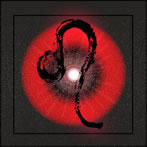 Leo (July 22-Aug. 23) — The past few weeks were a period of reassessment, as Mercury retrograde has been buzzing around your Moon (and it’s still close by). House cleaning of your inner space took you from cleaning out the cobwebs in the basement to refinishing the shutters in the attic. That’s a lot of ground to cover moving through the different levels of your emotional landscape. At times it felt like you were living in a Salvador Dali painting with doors in the walls and stairs that went to nowhere. You’ve been able to take stock of your emotional patterns and reactions, letting go of outdated responses. Quite a bit of space was cleared, making room for new methods of expression. Before you begin installing the new emotional fixtures, the work crew needs a short break. Spend the early part of the lunar month resting and recharging; sifting through inner layers drained your energy reserves. Mid-month an experience helps you turn an emotional corner from where you’ve been the past few weeks to where you are going. A new set of feeling patterns will quickly form in the spaces you’ve been uncluttering. This process will be accompanied by the feeling of snapping into place right after you wondered whether anything would ever fit. — By Genevieve Hathaway
Leo (July 22-Aug. 23) — The past few weeks were a period of reassessment, as Mercury retrograde has been buzzing around your Moon (and it’s still close by). House cleaning of your inner space took you from cleaning out the cobwebs in the basement to refinishing the shutters in the attic. That’s a lot of ground to cover moving through the different levels of your emotional landscape. At times it felt like you were living in a Salvador Dali painting with doors in the walls and stairs that went to nowhere. You’ve been able to take stock of your emotional patterns and reactions, letting go of outdated responses. Quite a bit of space was cleared, making room for new methods of expression. Before you begin installing the new emotional fixtures, the work crew needs a short break. Spend the early part of the lunar month resting and recharging; sifting through inner layers drained your energy reserves. Mid-month an experience helps you turn an emotional corner from where you’ve been the past few weeks to where you are going. A new set of feeling patterns will quickly form in the spaces you’ve been uncluttering. This process will be accompanied by the feeling of snapping into place right after you wondered whether anything would ever fit. — By Genevieve Hathaway
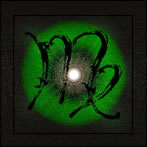 Virgo (Aug. 23-Sep. 22) — Continue to do less and rest more. Much is going on in your subconscious mind which might manifest as the feeling of psychic tension, or stress in your mental sphere. Then the pressure eases off, bringing a heightened level of focus and increased energy. Concentrate these new energy reserves on your personal interests, and hang out where you resonate emotionally and have a feeling of community. Set aside extra time to partake in these topics and activities. You’ll likely make contact with people who share these similar interests with you. When you meet individuals with similar passions, place more emphasis on the connection you’re building and less on what they can do for you right now. A strong network is grown from an intention to connect with the other person. Over the next few weeks, you’ll be more noticeable than usual to people around you. Utilize this time to actively pursue meetings with strategic relationships. These individuals will provide much in the way of support, assistance, knowledge and connections — and along the way you will meet up with people who will provide mentorship. — By Genevieve Hathaway
Virgo (Aug. 23-Sep. 22) — Continue to do less and rest more. Much is going on in your subconscious mind which might manifest as the feeling of psychic tension, or stress in your mental sphere. Then the pressure eases off, bringing a heightened level of focus and increased energy. Concentrate these new energy reserves on your personal interests, and hang out where you resonate emotionally and have a feeling of community. Set aside extra time to partake in these topics and activities. You’ll likely make contact with people who share these similar interests with you. When you meet individuals with similar passions, place more emphasis on the connection you’re building and less on what they can do for you right now. A strong network is grown from an intention to connect with the other person. Over the next few weeks, you’ll be more noticeable than usual to people around you. Utilize this time to actively pursue meetings with strategic relationships. These individuals will provide much in the way of support, assistance, knowledge and connections — and along the way you will meet up with people who will provide mentorship. — By Genevieve Hathaway
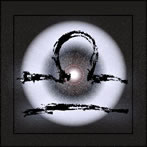 Libra (Sep. 22-Oct. 23) — Relating and relationship are two essential ingredients for you to live what feels like an emotionally rewarding life. They are not the same thing. Relating is something you do with everyone; relationship implies some level of mutual commitment. It’s a connection to which you apply your need for balance and harmony. You bring these same principles to your working dynamic and reputation. Others’ perceptions carry an emotional component for you. Their approval is important; so is being liked and accepted. You may have concerns that others are questioning your reputation, though this seems to be unfounded. Your natural sense of fairness is widely respected even if those around you do not vocalize it. I would pose a question for consideration: if all eyes were on you, how would you use the opportunity, and what message would you communicate in terms of your most precious career goals? In essence, that is the situation you find yourself in. Notice how smoothly conversations, deals and proposals proceed when you are shining your most radiantly. Trust that in making moves to assert your agenda, you are not tipping the scale out of balance, rather moving everyone along with your vision to a place of greater harmony for all involved. — By Genevieve Hathaway
Libra (Sep. 22-Oct. 23) — Relating and relationship are two essential ingredients for you to live what feels like an emotionally rewarding life. They are not the same thing. Relating is something you do with everyone; relationship implies some level of mutual commitment. It’s a connection to which you apply your need for balance and harmony. You bring these same principles to your working dynamic and reputation. Others’ perceptions carry an emotional component for you. Their approval is important; so is being liked and accepted. You may have concerns that others are questioning your reputation, though this seems to be unfounded. Your natural sense of fairness is widely respected even if those around you do not vocalize it. I would pose a question for consideration: if all eyes were on you, how would you use the opportunity, and what message would you communicate in terms of your most precious career goals? In essence, that is the situation you find yourself in. Notice how smoothly conversations, deals and proposals proceed when you are shining your most radiantly. Trust that in making moves to assert your agenda, you are not tipping the scale out of balance, rather moving everyone along with your vision to a place of greater harmony for all involved. — By Genevieve Hathaway
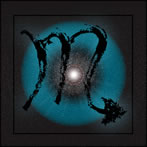 Scorpio (Oct. 23-Nov. 22) — Much of your emotional-body experience is dictated by your personal philosophy. In other words, you feel what you think is true. This viewpoint ties back to childhood; attitudes adults dictated as ‘good’ or ‘bad’ were based on verbal and physical clues designed to make you feel a certain way. During your early life, you learned to hide your feelings as a result of negative responses from adults. Those emotions became buried deep, and now you only touch the tip of the iceberg when you connect to them. To go deeper, try to remember some of those experiences. You don’t need to work them out as much as you need some clue that there is a matter of depth involved, and that the depth may point you to the past. As you do this, it’s vital to remember that how others responded has more to do with them than you. But you didn’t know that at the time. Now, however, you’re getting help with shaking loose the conditioning which led to these buried and crystallized feelings. As this material becomes accessible, acknowledge how it does not dictate the manner in which your present emotions will be received by future partners. This will take some courage. You have not fully sat with these emotions for a long time. — By Genevieve Hathaway
Scorpio (Oct. 23-Nov. 22) — Much of your emotional-body experience is dictated by your personal philosophy. In other words, you feel what you think is true. This viewpoint ties back to childhood; attitudes adults dictated as ‘good’ or ‘bad’ were based on verbal and physical clues designed to make you feel a certain way. During your early life, you learned to hide your feelings as a result of negative responses from adults. Those emotions became buried deep, and now you only touch the tip of the iceberg when you connect to them. To go deeper, try to remember some of those experiences. You don’t need to work them out as much as you need some clue that there is a matter of depth involved, and that the depth may point you to the past. As you do this, it’s vital to remember that how others responded has more to do with them than you. But you didn’t know that at the time. Now, however, you’re getting help with shaking loose the conditioning which led to these buried and crystallized feelings. As this material becomes accessible, acknowledge how it does not dictate the manner in which your present emotions will be received by future partners. This will take some courage. You have not fully sat with these emotions for a long time. — By Genevieve Hathaway
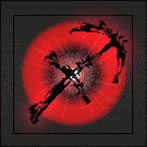 Sagittarius (Nov. 22-Dec. 22) — In all that you do, look for the experience of common ground. That might translate into the most ordinary situations right into contracts or negotiations. Your ability to form a mutually beneficial arrangement is easier to reach than it may initially appear. The Leo New Moon is your invitation to initiate discussion of commitments or agreements, as new information will continue to surface. Do your homework, though trust your intuition on which agreements are good and which need further consideration. You may need to get under the surface before you feel any solid confidence. Your emotional attunement to all facets of the situation will be clear, if you pay attention. Settle into yourself and listen for your inner guidance, which will come as a tug in what you know is the right direction. There won’t be any fear, doubt or guilt. Rather, you’ll notice just a simple nudge that feels right. Once you get that, follow it. Keep your agreements clear, straightforward and detailed; if this involves business, have all angles out in the open in written form, leaving nothing to assumption. You will know you’re in the right place when the theme is the greatest good for all concerned. — By Genevieve Hathaway
Sagittarius (Nov. 22-Dec. 22) — In all that you do, look for the experience of common ground. That might translate into the most ordinary situations right into contracts or negotiations. Your ability to form a mutually beneficial arrangement is easier to reach than it may initially appear. The Leo New Moon is your invitation to initiate discussion of commitments or agreements, as new information will continue to surface. Do your homework, though trust your intuition on which agreements are good and which need further consideration. You may need to get under the surface before you feel any solid confidence. Your emotional attunement to all facets of the situation will be clear, if you pay attention. Settle into yourself and listen for your inner guidance, which will come as a tug in what you know is the right direction. There won’t be any fear, doubt or guilt. Rather, you’ll notice just a simple nudge that feels right. Once you get that, follow it. Keep your agreements clear, straightforward and detailed; if this involves business, have all angles out in the open in written form, leaving nothing to assumption. You will know you’re in the right place when the theme is the greatest good for all concerned. — By Genevieve Hathaway
 Capricorn (Dec. 22-Jan. 20) — Have you noticed people gravitating to individuals who are open, raw and real in what they share with the larger public? In an era when much of our interaction with another person is their projected image, a dose of authenticity is attractive and refreshing. This applies to you, too. Individuals who are entering your life now are interested in meeting the genuine you. Authenticity involves sharing all parts of yourself, including the more tender emotions. It also means understanding the concept of pretense, and avoiding it. Trust is involved, trust that exposing the softer, more sensitive aspects of yourself will be met with a positive response. Working from this place attracts those who are best suited for you, and also allows the other person to know when you need some emotional buoying. You present a tough shell, but you’re softer than water inside. Focus on the idea that the people entering your life will embrace your fears and insecurities — and love you for them. This is a form of self-acceptance, though it really helps when others set the example for us. — By Genevieve Hathaway
Capricorn (Dec. 22-Jan. 20) — Have you noticed people gravitating to individuals who are open, raw and real in what they share with the larger public? In an era when much of our interaction with another person is their projected image, a dose of authenticity is attractive and refreshing. This applies to you, too. Individuals who are entering your life now are interested in meeting the genuine you. Authenticity involves sharing all parts of yourself, including the more tender emotions. It also means understanding the concept of pretense, and avoiding it. Trust is involved, trust that exposing the softer, more sensitive aspects of yourself will be met with a positive response. Working from this place attracts those who are best suited for you, and also allows the other person to know when you need some emotional buoying. You present a tough shell, but you’re softer than water inside. Focus on the idea that the people entering your life will embrace your fears and insecurities — and love you for them. This is a form of self-acceptance, though it really helps when others set the example for us. — By Genevieve Hathaway
 Aquarius (Jan. 20-Feb. 19) — Originality can be thought of not as doing something better, but rather differently and in a useful way. In this concept, there is a component of creativity and a component of independence. Both are needed to move outside limited mental and emotional boxes where most people reside. These days, you can slip out of the frameworks that are usually viewed as unmovable rules. This may involve finding the side door to get around what was thought of as ‘the way’ things had to be done. For the next few weeks, I suggest you apply a few original ideas to the daily process by which you accomplish your work. This will help you build a more elegant method for letting your inventive nature flourish. Start with an analysis of work tasks that need to be accomplished. Take a practical approach rather than a ‘creative’ one. Then some experimentation in how you go about completing your projects. Freedom to structure your time will bring you a creative flow that lends itself to production of high-caliber, unique material. — By Genevieve Hathaway
Aquarius (Jan. 20-Feb. 19) — Originality can be thought of not as doing something better, but rather differently and in a useful way. In this concept, there is a component of creativity and a component of independence. Both are needed to move outside limited mental and emotional boxes where most people reside. These days, you can slip out of the frameworks that are usually viewed as unmovable rules. This may involve finding the side door to get around what was thought of as ‘the way’ things had to be done. For the next few weeks, I suggest you apply a few original ideas to the daily process by which you accomplish your work. This will help you build a more elegant method for letting your inventive nature flourish. Start with an analysis of work tasks that need to be accomplished. Take a practical approach rather than a ‘creative’ one. Then some experimentation in how you go about completing your projects. Freedom to structure your time will bring you a creative flow that lends itself to production of high-caliber, unique material. — By Genevieve Hathaway
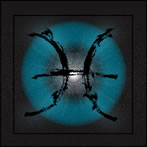 Pisces (Feb. 19-March 20) — Creating art on a regular basis is an important element of your happiness and fulfillment. If you don’t already have a space dedicated as your art studio, get busy making one. The area can be a room in your home, part of your office or even a corner of your apartment. It might be the special way you arrange your desk at night, when other work is out of the way. Then get down to the business of creating. Or put another way, journey into your complex and colorful inner world for timely inspiration. The current astrology points to your emotional realm being a fuel source for everything, though the way you tap in is through ‘pure’ creativity — which provides ideas, excitement and vision. Do not worry about what other creative individuals are doing; rather, focus on what inspires you, and the items or ideas you create will inherently have value. Careful and intentional time management will be necessary. As a slippery fish, it’s easy for you to wonder where the time went. — By Genevieve Hathaway
Pisces (Feb. 19-March 20) — Creating art on a regular basis is an important element of your happiness and fulfillment. If you don’t already have a space dedicated as your art studio, get busy making one. The area can be a room in your home, part of your office or even a corner of your apartment. It might be the special way you arrange your desk at night, when other work is out of the way. Then get down to the business of creating. Or put another way, journey into your complex and colorful inner world for timely inspiration. The current astrology points to your emotional realm being a fuel source for everything, though the way you tap in is through ‘pure’ creativity — which provides ideas, excitement and vision. Do not worry about what other creative individuals are doing; rather, focus on what inspires you, and the items or ideas you create will inherently have value. Careful and intentional time management will be necessary. As a slippery fish, it’s easy for you to wonder where the time went. — By Genevieve Hathaway



